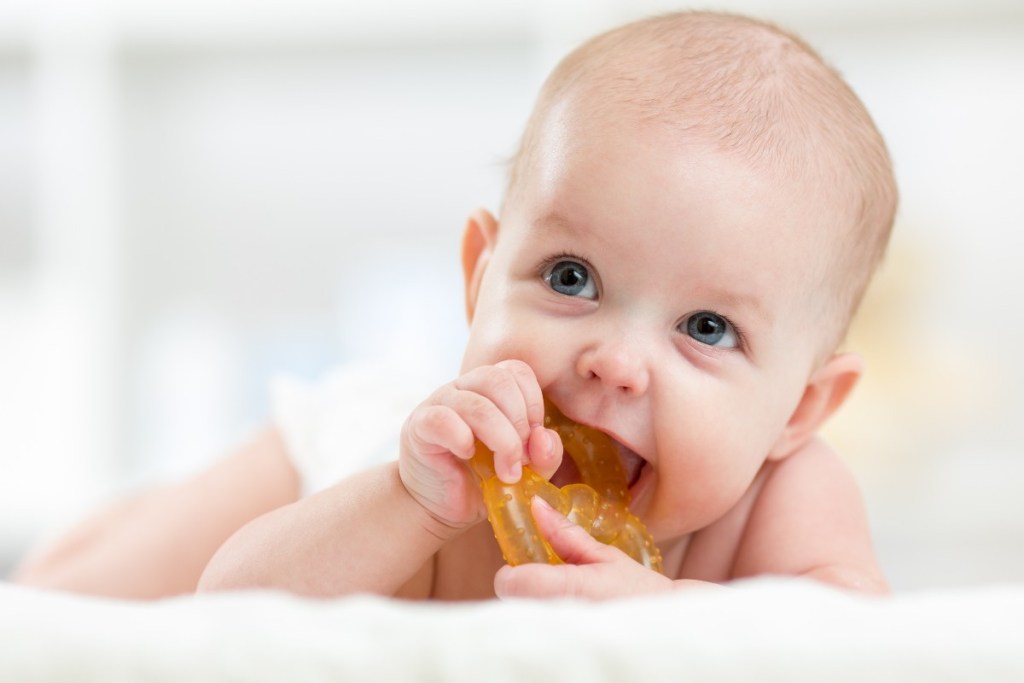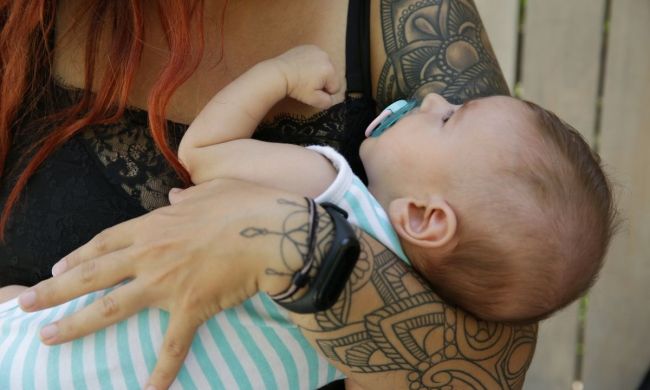If you’ve ever asked the question, “Why do babies like teethers?” then you’re not alone. Most likely, you may have noticed a baby as young as 3 or 4 months chewing on their clothing, fingers, and toys more often. This behavior is quite normal and marks the beginning of the teething phase when your baby’s teeth are starting to develop. So, we bring you not only the answer to this question but also the signs of teething to watch for and what type of teether for babies provides the most comfort.

Why do babies like teethers and when do they actually start teething?
Most babies start teething at 4 months, but some start as early as 3 months. Nonetheless, every child meets different milestones at different times. Somewhere within this timeline, you might notice that your little one is drooling more often, and as they learn to grasp onto objects, they automatically go into the mouth first.
While this change of behavior might require keeping a closer watch on your baby to prevent choking from occurring, it’s a natural reaction to the world around them. Babies first learn to grasp things and place them in their mouths. From there, they start picking up on how the mouth and tongue move. This is how they start figuring out the movement involved with chewing and forming sounds. However, this hand-to-mouth action doesn’t relate to teething.
How teethers help with gum soreness
On the other hand, if you notice swelling in the gums, increased drooling, a low-grade fever, and fussiness, then your baby has likely started teething. Because of the soreness in the gums that comes from the teeth trying to push through, the gentle pressure and cool temperature of a teether bring a welcome relief to your little one. If the teether has tiny bumps or ridges, then your child can also use this toy to massage the gums to stop the pain.
Also, some teether’s are filled with liquid and can be chilled in the refrigerator in between uses. The cold helps to numb your baby’s gums and thus, alleviates the soreness. One vital tip to remember is to never keep a teether in the freezer because the frozen material can shatter and as a result, pose a choking a hazard for your baby. Just like food or anything else that goes in your baby’s mouth, close supervision is also extremely important.

Which teethers work best?
Finding the ideal teether for babies is quite easy when you keep these specific traits in mind:
- Size that makes the object easy to grasp
- A shape that enables grasping or a handle that won’t break off
- A texture that provides relief and massages the gums without further irritation
Also, when shopping for teethers, check the label carefully to make sure it’s made from non-BPA or phthalate materials that are durable and won’t break or tear under the pressure of your baby’s teething. Plus, you’ll need to avoid using toys that were not specifically meant to be teethers, especially if they have small parts.
Tips for cleaning teethers
Teethers often get dropped or placed on various surfaces. Thus, keeping them clean is vital yet simple. For example, if you’re running errands or visiting someone with your baby, you can keep some sanitary wipes in the diaper bag to wipe off teethers or toys. Also, if possible, you can also rinse and dry the teether after wiping it down.
At home, you can also hand wash teethers in warm water. Possibly, you can place teethers on the top rack of the dishwasher, but you’ll need to carefully check them for any cracks or tears.
So why do babies like teethers? All in all, the chewing action aids in the child’s development in relation to learning how to eat and how to form the mouth for speaking. Plus, the handling of the teether also builds fine motor skills and strengthens the hand muscles by picking up, grasping, and holding it. Nevertheless, the main reason babies like teethers is for the relief they provide when the teeth are developing and cutting through the gums. Now, who would’ve ever thought that a teether would serve so many purposes? Still, it doesn’t hurt to have multiple on hand.



